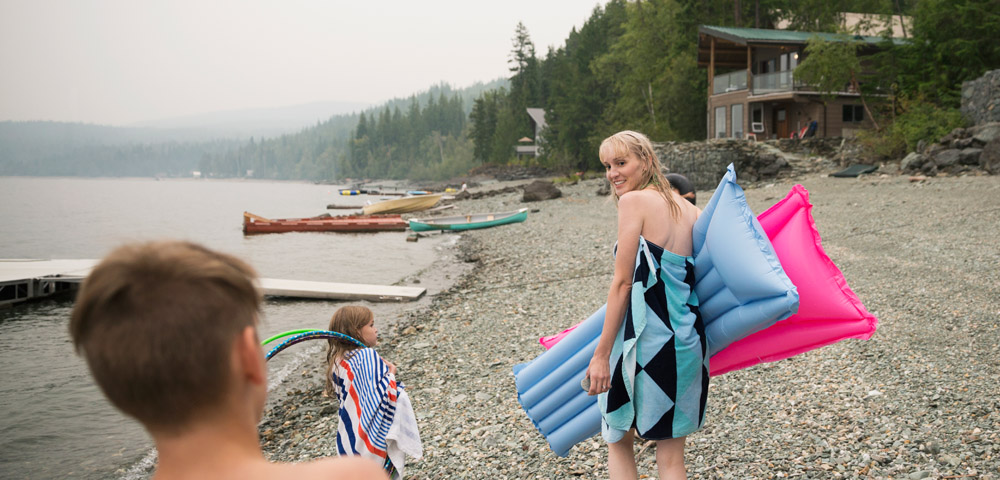Buying a Vacation Home: Is It Time to Make a Move?

Vacation homes come in all shapes and sizes. Regardless of whether your dream vacation home is a quiet cottage by the lake, a beach villa or a condo at the golf course, buying a vacation home can be a difficult decision.
The housing market can often send mixed signals on whether the time is right to purchase a vacation property. It could feel like the right time to buy a vacation home if the market has incredibly low interest rates, for example. Those low rates could be less appealing, however, if you also face rising property values — causing increased competition and lack of supply in high-demand areas.
The reality is that the market for buying a home varies widely by location. The housing markets in Hilton Head and Myrtle Beach, South Carolina, are vastly different from those in Miami, Florida, or Maui. As such, buying a vacation home often comes down to a case-by-case decision.
Vacation Properties Can Serve a Variety of Purposes
Vacation homes are becoming increasingly versatile in their uses for families, but the time to decide on using these properties for short-or long-term renting is now. According to a 2018 National Association of Realtors (NAR) report, a majority of owners believe the market is currently favorable to buy, with 72% of vacation property owners and 71% of investment property owners indicating that now is the time to buy. That same research also highlighted that 45% of investment property buyers purchased vacation property to generate income through renting (as opposed to flipping or price appreciation).1
The emergence of short-term rental booking companies like Airbnb and VRBO has disrupted the marketplace, making rental of a vacation property more accessible—and property owners seem to be taking advantage. Revenue in the vacation rentals business segment is projected to total $17.5 billion, a 2.9% growth year-over-year according to a report by research firm Statista.2 Competition for this revenue also stands to increase, with owners recognizing the opportunity of leveraging vacation properties as rentals. e National Association of Realtors (NAR) also reports that approximately one-third (30%) of vacation property owners indicated they will rent their property.3 More and more, vacation properties represent a business opportunity for families, as much as they are a family hideaway.
Owning vs. Renting
The decision whether to own or rent is personal and differs for everyone. Some prefer owning a vacation home that they can enjoy with friends and family year-after-year, while others like the flexibility of traveling to new destinations. Certainly, it doesn't have to be an either-or decision. You can create a financial plan that allows you to do both. However, for those who are debating between whether to put funds toward the purchase of a vacation home or saving those funds for vacation travel, here are pros and cons that can influence the financial aspect of your decision.
Is the Price Right?
The old adage about buying low and selling high is a cornerstone for any investment, and it's certainly holds true in real estate. Traditionally, real estate has been an asset class that has appreciated over time. However, it can also be cyclical, with prices that fluctuate during up and down markets. The Great Recession proved how prices can drop dramatically. People also owed more on their mortgages than their homes were worth. At the same time, those lower values created attractive opportunities for buying vacation homes at bargain prices. According to the Joint Center of Housing Studies of Harvard University, most properties have regained previous peak prices. However, on an inflation-adjusted basis, national home prices remain nearly 15 percent below previous highs in 2006.
Generating Rental Income
Buying a vacation home can be an investment. Property — especially in high-demand or up-and-coming areas — has the potential to appreciate. Owners can generate additional income by renting out their home through a third-party service or apps like Airbnb.
Beware of Hidden Costs
One of the pitfalls in purchasing a vacation home is that people focus on the "sticker price" — the purchase price and the monthly mortgage or financing fee. When deciding whether to make a purchase, or even how much to spend, it's also important to add in all the other expenses that come with buying a home, such as real estate taxes, insurance, association fees, maintenance and travel expenses to visit the home.
Plan for the Future
Vacation homes can provide years of enjoyment for family and friends, and they also can provide an added nest egg or legacy for future generations. One important step while financial planning is to include that vacation home in your broader estate planning strategy to help ease the transition of ownership and avoid the headaches of going through probate or ancillary probate (if your vacation home is in a different state) — the legal process that manages, settles and distributes your property according to the terms of your will.
Wise Buying & Borrowing offers tips that can help provide further guidance on making decisions to buy a vacation home — or making any major purchase. At the end of the day, this is a decision that needs to take into account personal preferences and lifestyle choice along with the financial implications. Buyers need to carefully weigh the pros and cons, as well as address key questions, such as how the purchase fits into their long-term goals for building wealth and financial planning for the future.